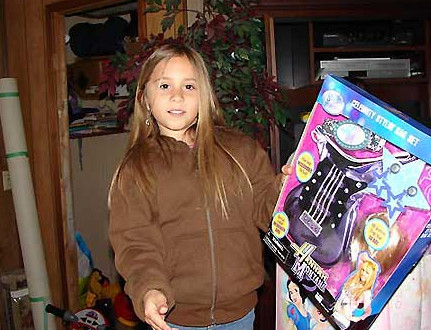Suitcase in the Pond

“Suitcase in the Pond”: The Sandra Cantu Case

The tragic case of Sandra Cantu, known as the “Suitcase in the Pond” case, stands as one of the most chilling child murder cases in modern American history. Involving the sudden disappearance and brutal death of an 8-year-old girl in Tracy, California, in 2009, the case shocked the nation not only because of the victim’s young age but also due to the unexpected identity of the perpetrator—someone from within the child’s close-knit community. The disturbing nature of the crime, along with its emotional impact, left a permanent mark on both the local town and the national conscience.
The Disappearance
On March 27, 2009, Sandra Cantu left her home in the Orchard Estates Mobile Home Park to visit a friend who lived nearby. She never returned. Her family, alarmed by her failure to come home, reported her missing to the Tracy Police Department that same evening. What followed was a frantic search effort by local authorities, volunteers, and federal agents. The community came together to distribute flyers, organize search parties, and spread awareness through the media.
Surveillance footage from a neighbor’s security camera showed Sandra happily skipping down the street, the last confirmed sighting of her. As the days passed with no sign of the little girl, fear and speculation grew. The idea that a child could vanish in broad daylight from a seemingly safe neighborhood was deeply unsettling.
The Horrifying Discovery
Ten days after her disappearance, on April 6, 2009, a farmworker draining an irrigation pond near Tracy discovered a large suitcase floating in the water. Inside was the lifeless body of Sandra Cantu. She had been bound and gagged, with signs of sexual assault and physical trauma. The autopsy revealed that she had been sedated with powerful prescription drugs and eventually died from asphyxiation.
The discovery of her body in such a cruel and calculated manner horrified the public and intensified the investigation. The suitcase itself turned out to be a critical clue, as it was identified as belonging to Melissa Huckaby, a Sunday school teacher and fellow resident of the same trailer park.
A Shocking Suspect

Melissa Huckaby was a 28-year-old single mother whose daughter was a playmate of Sandra. She lived just a few trailers down from the Cantu family. Huckaby had already raised some suspicion by previously reporting the suitcase missing and by behaving erratically during the investigation. She had inserted herself into the case—crying during interviews, handing out flyers, and even claiming that a note had been left at her church that mentioned Sandra’s body.
As investigators dug deeper, they found more troubling evidence. Traces of Sandra’s DNA were discovered in Huckaby’s church, where she taught children and had private access. Security footage from the church showed Huckaby pulling into the parking lot shortly after Sandra disappeared and staying there for several minutes. Forensic analysis also found sedatives in Sandra’s system—drugs that Huckaby had been prescribed.
On April 10, 2009, Melissa Huckaby was arrested and charged with kidnapping, rape with a foreign object, and first-degree murder. The community was stunned. The idea that a seemingly religious, motherly figure could commit such a heinous crime against a child she knew personally was incomprehensible.
The Legal Outcome
Initially pleading not guilty, Huckaby later accepted a plea deal in May 2010 to avoid the death penalty. She pled guilty to first-degree murder and kidnapping with enhancements for committing lewd acts and administering drugs. In exchange, prosecutors dropped the sexual assault charges and agreed to life imprisonment without the possibility of parole.
Though Huckaby never fully explained her motive, the prosecution and psychological reports suggested mental illness and emotional instability may have played roles. However, the calculated nature of the crime—luring Sandra, drugging her, killing her, and disposing of her body—indicated a level of premeditation that horrified even veteran investigators.
Aftermath and Impact
The Sandra Cantu case left a deep scar in the Tracy community. Parents became more vigilant, schools increased security, and discussions about child safety became more urgent and widespread. Sandra’s family later established a foundation in her name to promote child safety awareness and support other victims of violence.
The case has since been featured in numerous true crime programs and documentaries, including Dateline NBC, 48 Hours, and 20/20. It is often studied in criminal justice courses as an example of a rare but deeply unsettling category of crime—a female perpetrator of child murder, particularly one who knew the victim personally.
Conclusion
The “Suitcase in the Pond” case is a stark reminder that danger can sometimes come from the most unexpected places. Sandra Cantu’s death was not only a personal tragedy for her family but also a collective trauma for the nation. It revealed the vulnerabilities of even the most watchful communities and emphasized the importance of mental health awareness, background checks, and public vigilance.
While justice was ultimately served, nothing could ever bring back the bright, joyful child whose life was cruelly cut short. Sandra’s story continues to resonate as a sobering testament to the importance of protecting children and recognizing the signs of potential threats—no matter how familiar or trusted they may appear.





